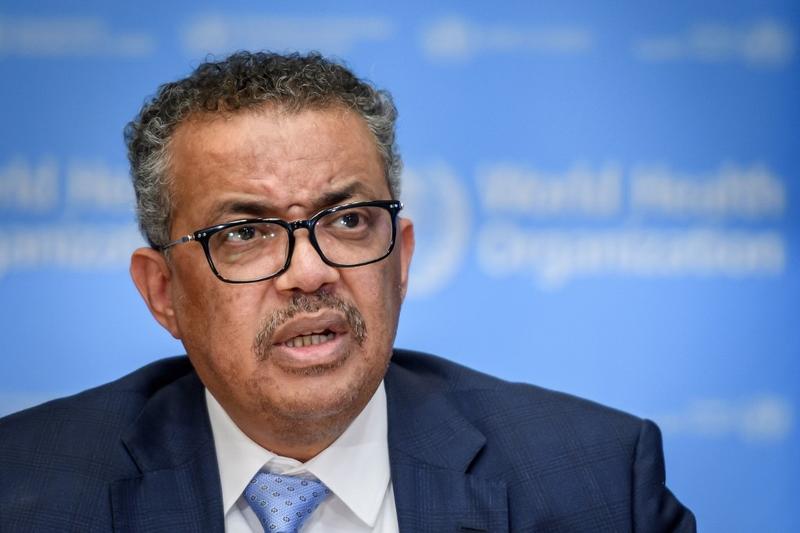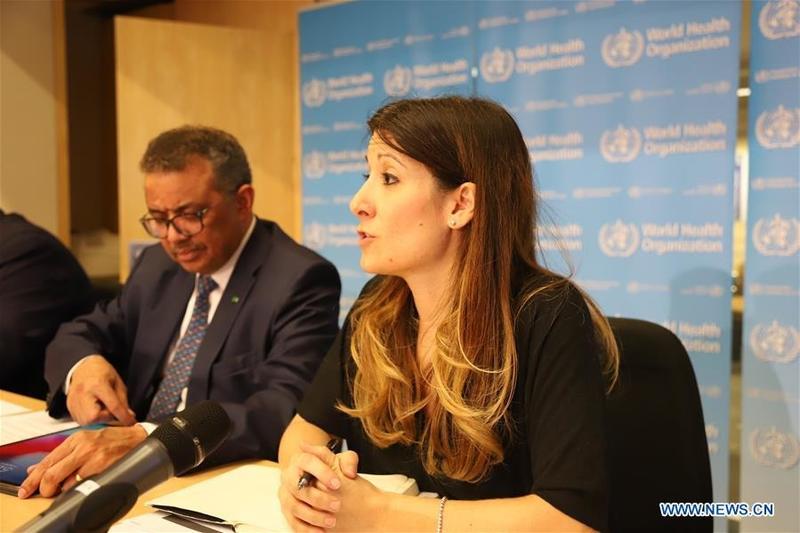 World Health Organization (WHO) Director-General Tedros Adhanom Ghebreyesus attends a daily press briefing on the new coronavirus dubbed COVID-19, at the WHO headquaters on March 2, 2020 in Geneva. (FABRICE COFFRINI / AFP)
World Health Organization (WHO) Director-General Tedros Adhanom Ghebreyesus attends a daily press briefing on the new coronavirus dubbed COVID-19, at the WHO headquaters on March 2, 2020 in Geneva. (FABRICE COFFRINI / AFP)
GENEVA - COVID-19 is not a pandemic for now although there are very concerning signs, the chief of World Health Organization (WHO) said on Thursday, expressing his deep concern about the spread of the coronavirus into an increasing number of countries with weaker health systems over the past few days.
Although the situation could be worse than what we are now and it could be a pandemic level, there are countries within this situation which have shown that it (COVID-19) can be contained
Tedros Adhanom Ghebreyesus, WHO girector-general
"Although the situation could be worse than what we are now and it could be a pandemic level, there are countries within this situation which have shown that it (COVID-19) can be contained," WHO Director-General Tedros Adhanom Ghebreyesus said at a daily briefing, underlying "we should not give up until the last attempt".
As of Thursday morning, 95,265 cases of COVID-19 have been reported globally, including 3,281 deaths, according to WHO.
Tedros insisted that pandemic can only be declared based on evidence, which is not there yet.
READ MORE: WHO chief: Coronavirus is a virus with 'unique characteristics'
He praised those countries which have been fighting hard against the epidemic, noting positive signals and experience regarding the virus have already emerged.
Moreover, Tedros called for a comprehensive approach, stressing the political commitment and intervention should be triggered in all countries for COVID-19 containment.
Be Ready for COVID-19
The WHO announced on Thursday that it's launching a new social media campaign urging people to be safe, smart and informed when faced by the COVID-19 outbreak.
"We know people are afraid, and that's normal and appropriate ... That fear can be managed and moderated with accurate information," said WHO Director-General Tedros Adhanom Ghebreyesus at the daily briefing.
ALSO READ: WHO lauds efforts after investigations
That's why the WHO is launching a new social media campaign called "Be Ready for COVID-19," he said. "If you feel overwhelmed by fear, reach out to those around you. Find out what your community's emergency response plans are, how you fit in and how you can help."
"There's still a lot we don't know, but every day we're learning more, and we're working around the clock to fill in the gaps in our knowledge." Tedros said. "Ultimately, how deadly this virus will be depends not only on the virus itself, but on how we respond to it."
"We're all responsible for reducing our own risk of infection, and if we're infected, for reducing our risk of infecting others," he said.
 Technical lead for the WHO's Health Emergencies Program Maria van Kerkhove (right) speaks during a daily briefing in Geneva, Switzerland, on March 5, 2020. (CHEN JUNXIA / XINHUA)
Technical lead for the WHO's Health Emergencies Program Maria van Kerkhove (right) speaks during a daily briefing in Geneva, Switzerland, on March 5, 2020. (CHEN JUNXIA / XINHUA)
Take fundamental measures
WHO is concerned that some countries have either not taken COVID-19 seriously enough, or have decided there's nothing they can done
China's experience has shown fundamental measures do work to contain COVID-19, such as measures of identifying cases and contacts, as well as mobilizing population, an epidemiologist of the WHO noted on Thursday, calling on countries to make full use of them.
Deeply touched by the absolute drive of every person she met in China amid the epidemic, Maria van Kerkhove, technical lead for the WHO's Health Emergencies Program, added that Chinese people know how to protect themselves and their families, as well as what they need to do collectively to bring the epidemic under control.
WHO is concerned that some countries have either not taken COVID-19 seriously enough, or have decided there's nothing they can do, as the number of countries reporting cases keeps rising, especially those with weaker health systems.
Even if confirmed cases were reported in a country, it doesn't mean clusters or large-scale outbreak would be certain to occur, Kerkhove said, adding that it doesn't mean the epidemic would go out of control either.


